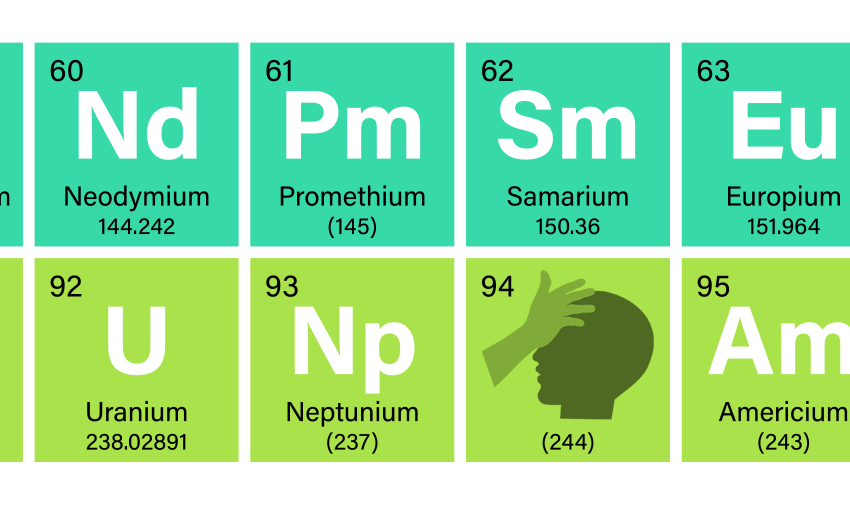Element 92 is uranium, 93 is neptunium. What’s 94?
Don't scroll until you've answered.

Duh! is a weekly column that gives circuitous answers to obvious questions. If you dig it, you can find 100 more of these essays in the Geeks Who Drink book, Duh!.
The erstwhile planet Pluto was discovered in 1930–right around the dawn of pop culture,1 and at a time when a lot of people had not much else to do aside from being fascinated by space rocks–and so it got a good many things named for it:
- Mickey Mouse’s pet dog, who happily made his debut just a few months after the then-planet’s discovery. Since then, he has mainly just made people wonder why he’s a pet while his fellow dog Goofy is a talking, procreating biped.
- Into Plutonian Depths (1931), likely the first sci-fi novel set on the planet. According to the cover, its protagonists “bravely descend into a strange world beneath the planet’s surface” and “soon discover the Lamp-Heads.” If that’s not goofy enough for ya, one Amazon reviewer notes that “they don’t even wear space suits – just thick anoraks and oxygen masks.”
- A genus of solitary aphid wasps, named in 1937 by entomologist V.S.L. Pate. This isn’t very interesting on its own, but know this: V.S.L. stands for Vernon Sennock Lyonesse-Liancour. That is a name.
And then there’s plutonium, the radioactive element first synthesized in Berkeley, California in 1940, and the only one to score the trifecta of leveling a city, being eaten by unwitting Poles, and powering a time machine. Its most common isotope, plutonium-239, has a half-life of just over 24,000 years–so it would be a perfect family heirloom if it weren’t for, you know, the death and whatnot.
But that concludes the gratuitously grim humor portion of our program. Instead, let’s focus on the super-wholesome story of how Pluto got its name.
When Clyde Tombaugh, an astronomer at Arizona’s Lowell Observatory, published his discovery of a new planet in March 1930, he put an exclamation point on the search begun 25 years earlier by the observatory’s namesake founder, Percival Lowell. By finding the first planet since Neptune, 84 years earlier, he also caused an international sensation.
One such international who took note was the celestially-obsessed British 11-year-old Venetia Burney, whose grandfather, the awesomely-named Falconer Madan,2 had a connection in the Royal Astronomical Society. Figuring that Planet X was likely to be dark and gloomy, Burney mentioned at breakfast one morning that she thought it should be named for the Greek god of the underworld.3 Madan passed the idea along, only to find that the RAS had just been considering names, and hadn’t come up with anything better. (The Britons weren’t in charge of naming the planet, but naturally their recommendation had some heft.)
As the Americans debated–Minerva, Zeus, Atlas, Persephone–at least one bigwig considered Pluto a longshot because of its Satan-adjacency. But in the end, Lowell’s scientists chose it unanimously–at least partly because it starts with Percival Lowell’s initials.
Burney hadn’t considered that, but Madan rewarded her with a £5 note anyhow.
- In fact, it was 1930 when the Gershwins put out “I Got Rhythm,” and a year later that Charlie Chaplin released that beautiful farewell to the silent-film era, City Lights. Never thought my Xennial ass would get nostalgic for the Hooverville era, but here we are.
- Weirdly, when a different American discovered Mars’s two moons in 1877, it was Madan’s brother Henry, a chemistry professor, who came up with the names Phobos and Deimos. There were only like 1.5 billion people in the world back then, but still.
- Pluto actually comes from the Greek word for wealth–after all, the “underworld” is where all precious metals come from. Anyway, that’s why “plutocracy” is a thing, lest ye wonder.
